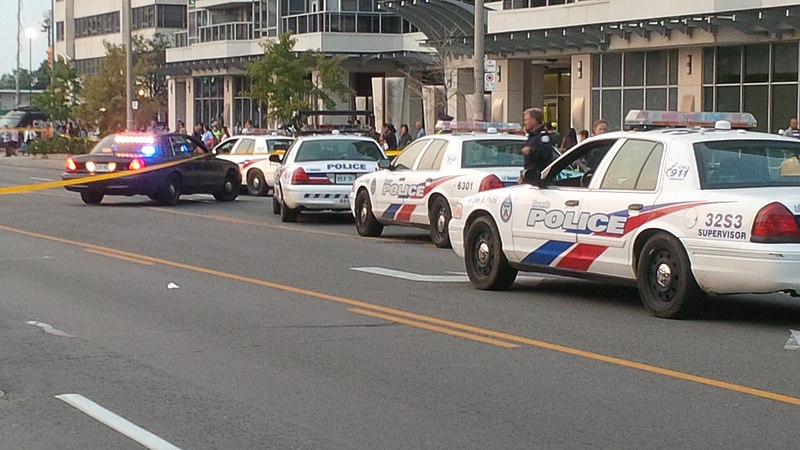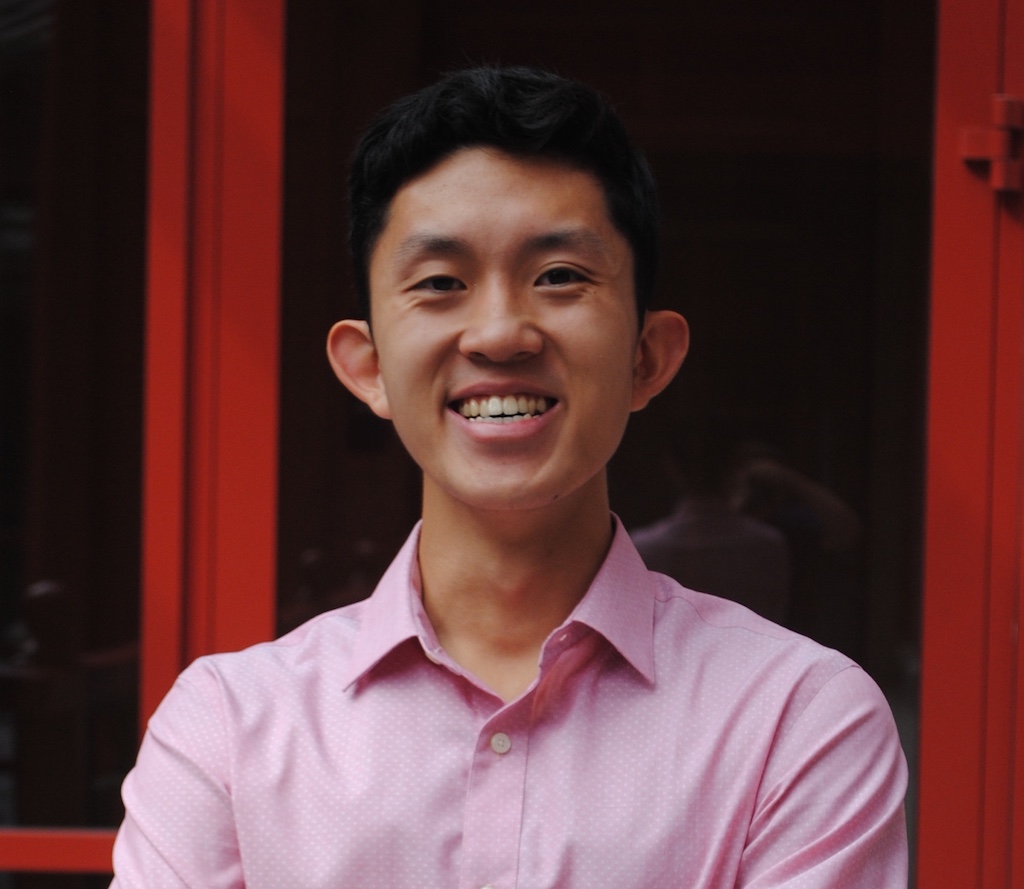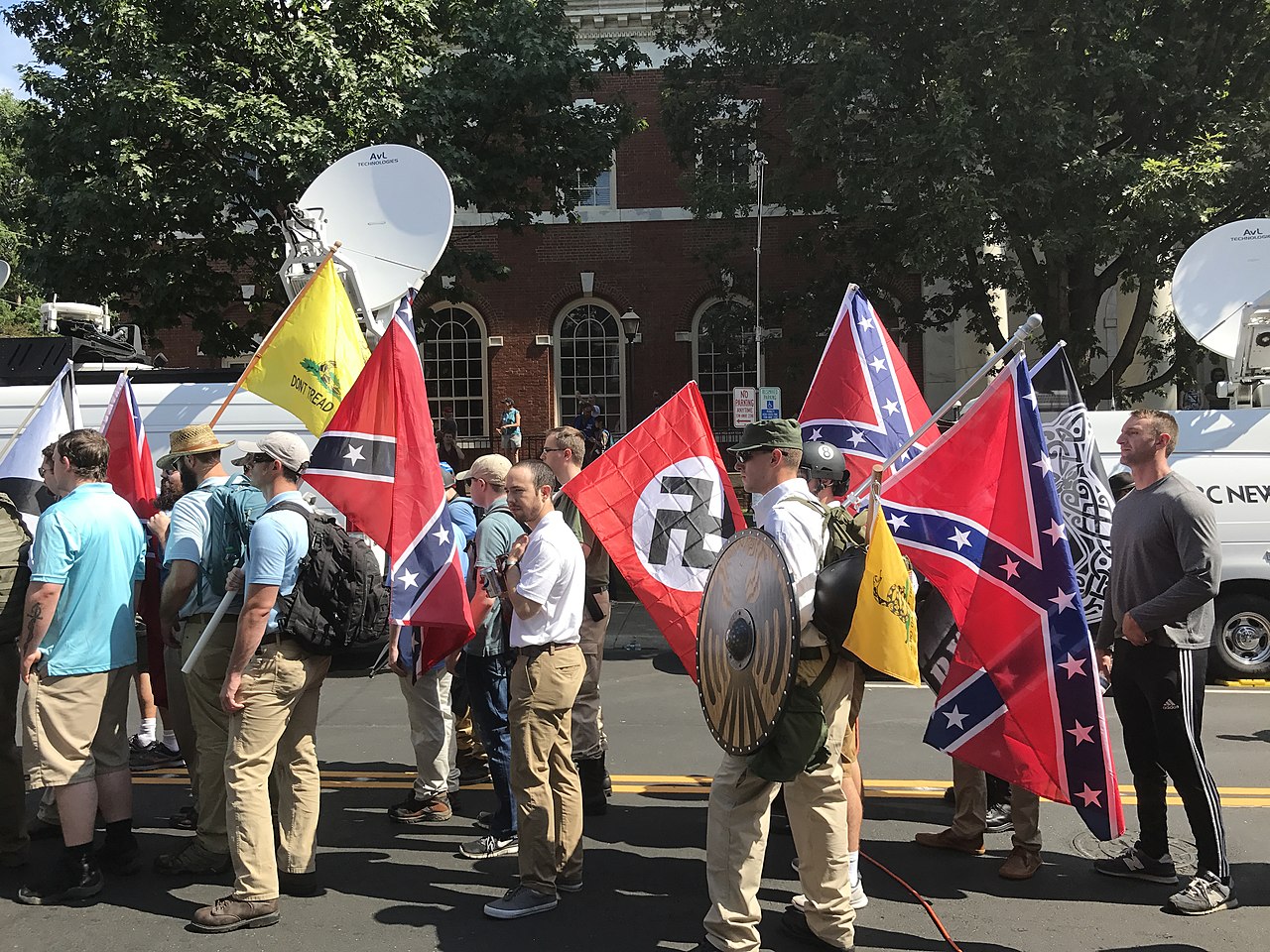Canadian Authorities Charge Teenager With Terrorism Over Incel-Based Violence
Canada brings terrorist activity charges for a murder at an erotic massage parlor, Trudeau loses a U.N. Security Council bid and other Canadian national security news.

Published by The Lawfare Institute
in Cooperation With

On May 19, Canadian authorities charged a 17-year-old teenager with terrorist activity in what could prove to be a landmark case. On Feb. 24, the Toronto police responded to a call regarding a stabbing. Police officers arrived at the Crown Spa, an erotic massage parlor, to find a man and a woman outside the premises “suffering from multiple stab wounds” and a dead woman “inside the business premises.” That same day, authorities arrested a 17-year-old man, who cannot be named under the Youth Criminal Justice Act. The accused was initially charged with first-degree murder and attempted murder.
However, the Royal Canadian Mounted Police (RCMP)—Canada’s federal police service—issued a press release on May 19 announcing that “federal and provincial Attorney Generals[] have consented to commence terrorism proceedings” under the Criminal Code. The RCMP, in conjunction with a number of other agencies, determined that the crime “was … one in which the accused was inspired by the Ideologically Motivated Violent Extremist (IMVE) movement commonly known as INCEL (involuntarily celibate).” This is only the second time in Canada that terrorist activity charges have been brought for activities not connected to al-Qaeda or inspired by the Islamic State.
The Alberta-based Organization for the Prevention of Violence notes that incels are “predominantly young men who believe that their physical appearance coupled with women’s liberation and feminism has impeded them from forming physical relationships with women.” Since 2009, the organization notes, “individuals linked to the movement have been involved in at least 13 reported attacks in North America.” Canada is no stranger to incel-linked violence. In 2018, a man killed 10 people when he rammed his van into pedestrians on a busy Toronto sidewalk. In a police interview hours after his arrest, that man—25-year-old Alek Minnasian— described himself as part of the incel movement. He had previously praised Elliott Roger, who killed six people in California in 2014, and called for an “incel rebellion.” In June 2019, Alexander Stavropoulos stabbed a 35-year-old woman multiple times and injured her baby in an Ontario parking lot. Stavropolous described himself as an incel and said he had been inspired by Minnasian’s van attack.
Professor Kent Roach has noted that “terrorism offences [won’t] make a difference when it comes to the sentence.” A charge of terrorist activity does not increase the sentence beyond the minimum that first-degree murder already carries. Moreover, adding a terrorist charge could make it more difficult for prosecutors to win the case. Former Canadian Department of Justice lawyer Leah West noted that “ideology” is not defined in the Criminal Code. Criminal law professor Michael Nesbitt wrote on Twitter that the case will thus force Canadian courts “to deal seriously for the first time with what ‘ideological motive’ and ‘political purpose’ means.”
Canadian authorities’ decision to treat the Crown Spa murder as a case of terrorism has elicited both praise and criticism. Sadiya Ansari, writing for the Canadian current affairs magazine Maclean’s, argues that this charge is “worth celebrating” and that it “represents a reimagining of what national security means in this country.” Ansari notes that “[t]errorism laws have long been used against brown and block bodies.” Indeed, since 2001, “56 out of the 57 terror charges laid in Canada have been in cases of Islamist-inspired extremism.”
Yet a number of pundits and scholars have criticized the categorization of incel violence as terrorism. Reem Bahdi and Fahad Ahmad warn that Canadian national security agencies “will use their power on those who have not committed violence” and argue against an “anti-terrorism response to misogyny.” Simon Cottee, writing for Foreign Policy, argues that by “publicly announcing the charges, the authorities have just given the incel movement a tremendous coup, giving it a coherence, relevance, and menace way beyond what this fringe subculture can realistically claim to possess.”
The decision to treat the Crown Spa murder as terrorist activity has already led to concrete changes in the national security sphere. The Canadian Security Intelligence Service (CSIS)—Canada’s national intelligence service—has signaled that it will change the way in which it talks about extremist threats. In a public report released on May 20, CSIS argued that “the terminology used when discussing threats to our national security is important,” as it helps “ensure that language used does not unintentionally or unfairly stigmatize any given community.” Instead of using labels such as “right wing” and “left wing,” CSIS now breaks down ideologically motivated violent extremism into four categories: xenophobic violence, gender-driven violence, anti-authority violence, and other grievance-driven and ideologically motivated violence.
Canada loses U.N. Security Council Bid
On June 17, Canada lost its bid for a temporary seat on the United Nations Security Council. As part of the U.N.’s Western European and Other States Group, Canada competed with Ireland and Norway for one of two open seats on the council. In the final tally, Canada fell short by 20 votes. Norway received 130 votes, Ireland 128 and Canada a mere 108; the requisite number of votes for a seat was 128.
Prime Minister Justin Trudeau first announced in March 2016 that Canada would seek a nonpermanent seat on the Security Council. The prime minister said that “Canadians have accomplished extraordinary things in support of the UN’s mission to promote human rights, development, and peace and security.” The government spent more than CA$2 million on the bid and has also pledged to increase foreign aid as well as its peacekeeping footprint. The prime minister enlisted a number of political luminaries as part of Canada’s campaign. Notably, former Prime Minister Joe Clark and former Québec Premier Jean Charest—both Conservatives—joined Canada’s bid as special envoys. Canada most recently held a Security Council seat from 1999 to 2000 and lost its last race in 2010 under the government of Stephen Harper.
At a press conference on June 18, the prime minister blamed the failed bid on Canada’s late entry to the race; “the reality,” said Trudeau, “was that coming in five years later than [the other countries], gave us a delay that unfortunately we weren’t able to overcome.” Yet pundits and politicians from all sides of the political spectrum have argued that Trudeau’s campaign was too little, too late. Stephen Lewis, a former permanent representative to the United Nations and a former leader of the left-of-center Ontario New Democratic Party, commented that “[t]he prime minister is just fine with rhetorical flourishes. But when it comes to concrete policy, there just isn’t any.” The editorial board of the right-of-center National Post wrote: “What is clear is that Trudeau has spent millions of dollars, pledged millions more in aid, strained relations with some of our closest allies and cozied up to dictators with abhorrent human rights records in a failed attempt to get a seat on what has become a useless organ of an increasingly impotent multilateral institution.”
However, there may be a silver lining to Canada’s failure: The failed bid may push the Liberal government to rethink its foreign policy approach. Thomas Juneau, a professor of international affairs at the University of Ottawa, expressed hope that the failed bid would “prompt a re-examination of Canada’s ‘dilettante’ foreign policy.” Kaveh Shahrooz, a fellow at the nonpartisan Macdonald-Laurier Institute, has argued that “since we no longer have to worry about being liked by everyone, let us return to our core values and what we do well. Canada has long been a voice for democracy and human rights protections internationally. Let us reclaim that voice.” Canada’s Minister of Foreign Affairs, Françoise-Philippe Champagne, has already said that he would be open to a review of Canada’s foreign policy, though he argued that Canada’s “voice and our standing in the world is strong.”
In Other News
On June 19, Chinese officials formally indicted Michael Kovrig and Michael Spavor on charges of espionage. China detained both men in 2018 in retaliation for Canada’s arrest of Huawei CFO Meng Wanzhou in connection with an American extradition request. A number of prominent Canadians, including former Supreme Court Justice Louise Arbour and former Liberal Foreign Affairs Minister Lloyd Axworthy, penned a letter to Trudeau arguing that the government has the legal right to intervene to free Meng and to end the extradition trial. In response, a number of experts, including former Minister of Citizenship and Immigration Chris Alexander and former Premier of British Columbia Ujjal Dosanjh, published an open letter through the Macdonald-Laurier Institute, arguing that Canada must reject calls to release Meng. The letter argues that Meng’s early release “would be nothing less than the abandonment of the rule of law.” On June 25, Trudeau publicly rejected calls to release Meng and unilaterally end the extradition process. Trudeau warned that “releasing Meng Wanzhou to resolve a short-term problem would endanger thousands of Canadians who travel to China and around the world by letting countries know that a government can have political influence over Canada by randomly arresting Canadians.”





